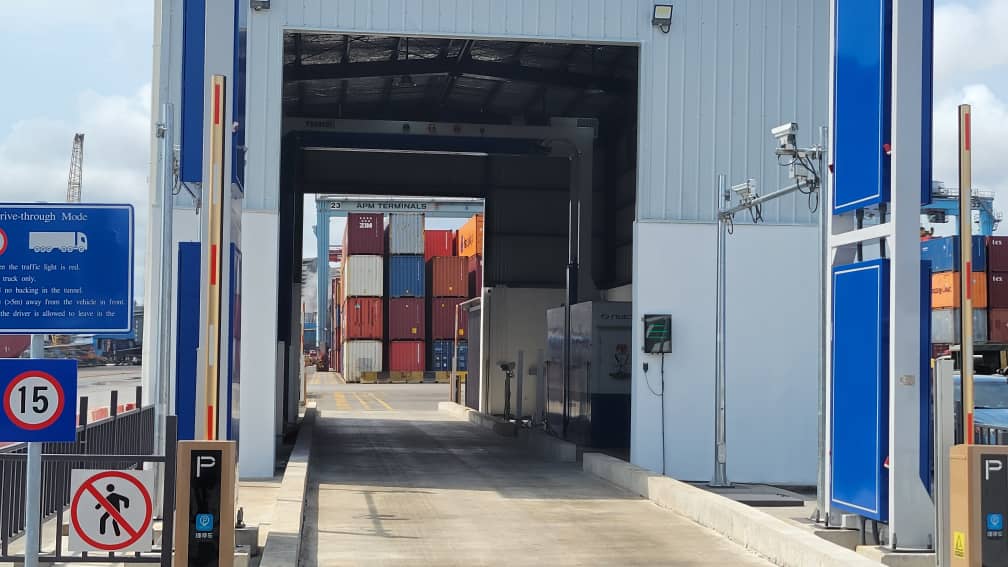The Nigeria Customs Service has finally deployed two long-awaited high-speed scanners to the Lagos Port Complex Apapa, marking what officials describe as a major leap towards fully digital cargo inspection after years of setbacks, system failures and infrastructure shortages.
Comptroller Emmanuel Oshoba of the Apapa Customs Command announced the development during a live test run at APM Terminals in the Lagos Port Complex, where he described the deployment as a turning point for port efficiency and national security.
The two new equipment — a mobile scanner and a drive-through scanner — are part of the wider Trade Modernisation Project, which aims to overhaul Customs operations and align Nigeria with global standards for electronic clearance and risk management.
Stakeholders have long criticised the absence of modern scanners at Nigeria’s busiest port, citing prolonged cargo dwell times, congestion and excessive reliance on physical examination.
However, Oshoba said the new systems are designed to address these long-standing challenges by enabling a fully paperless clearance process.
According to him, each scanner can process up to 200 containers per hour, drastically cutting down the time needed for inspection.
He said once a container is scanned, the image is automatically paired with its electronic declaration, allowing Customs officers to conduct instant analysis without manual paperwork.
Oshoba noted that clearance will now move much faster, with delays limited to cases where the scanner reveals discrepancies between declared contents and what is actually inside the container.
He stressed that honest and accurate declarations from clearing agents remain vital to ensuring smooth operations.
The Comptroller highlighted the security advantages of the high-resolution scanners, emphasising their ability to detect concealed contraband such as narcotics, weapons and other prohibited items.
He said the system enhances national security and supports the Comptroller-General’s push for end-to-end digitalisation across Customs operations.
Deputy Controller Umar Madugu, who heads the Scanning Unit, confirmed that the test run covered the full chain of operations, including image capture, data transmission, system communication and fault tolerance.
He stated that once fully operational, the scanners will significantly reduce the need for intrusive physical examinations.
Offering additional technical insight, Niu Chao, Project Manager for Nuctech Company Ltd — the system provider — explained that all scanned images are transmitted to a central cloud server in Abuja, where they are stored and analysed before being displayed to local operators.
He added that built-in redundancy ensures that scanning can continue even during network disruptions.
Representatives of the Trade Modernisation Project and terminal operators were present during the workflow simulation, observing what many anticipate will be a transformative upgrade for cargo processing at the port — long considered the heartbeat of Nigeria’s trade corridor.
